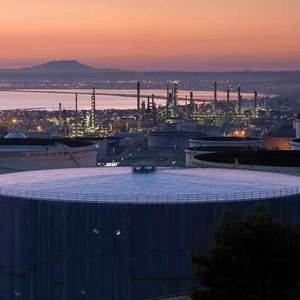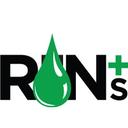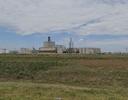A Transformative Project: Total's La Mède Conversion

Photo: Total S.A.
November 20, 2015
BY Ron Kotrba
Last spring, one of the world’s largest oil companies, Total S.A., based in Paris with operations in 130 countries, announced plans to transform its oil refinery in La Mède, France, to manufacture 500,000 tons (approximately 170 MMgy) of hydrotreated vegetable oil (HVO), also known as renewable diesel.
The La Mède oil refinery is in the South of France near Marseilles. The first unit was built in 1935, according to Philippe Billant, project director for Total and the head of the La Mède transformation. The cracking unit—the main conversion unit at the refinery—was installed in 1953. Capacity at La Mède today stands at roughly 150,000 barrels per day (nearly 2.3 billion gallons per year). For years, the asset has been losing money. “The refining environment in Europe is tough and competitive,” Billant says. “We have to see the La Mède project in that context.”
European demand for petroleum products has declined 15 percent since 2008. “The European market is steadily contracting,” Total states, “a situation aggravated by the shale oil and gas revolution in the United States … and competition from refineries in Asia and the Middle East. These two trends shut European refineries out of some of their domestic and export markets and have exacerbated excess refining capacity in Europe.”
In April, when Total announced plans to invest in the two of its five French refineries losing money—Donges and La Mède—Patrick Pouyanné, CEO, said, “There are three possible responses to the crisis in the European refining industry. The first is to throw in the towel. The second is to do nothing and perish. The third is to innovate and adapt to meet shifting demand trends.”
For La Mède, Billant says the location on France’s Mediterranean Coast is a highly competitive area. “Forty to 50 percent of France’s oil refining capacity is positioned in that very small area,” he says. “There’s excess capacity in the region compared to the demand for gasoline and heavy oils.” Billant says La Mède has lower competitive factors than the average refinery in Europe. “For instance, it has a low complexity factor due to the relatively low cracker capacity vs. the crude distiller,” he explains. “And despite investments over the years, the refinery has relative low energy efficiency and high costs.”
For these reasons, Total decided to end crude oil processing at La Mède by the end of 2016. “The status quo at La Mède is just not possible for us,” Billant says, “so we had to do something to make the operation profitable. Closing the complex was just not possible. We had to find maximum use for the assets at La Mède, including our highly skilled personnel.”
The transformation of the La Mède oil refinery to manufacture HVO is a first for France, but not for Europe. Italian oil company Eni S.p.A. blazed this trail in 2012 when it announced plans to convert its Porto Marghera refinery in Venice to produce 300,000 tons of renewable diesel using the Ecofining process it developed jointly with Honeywell’s UOP. Eni identified the opportunity to reuse the catalytic hydrodesulfurization section in the Venice refinery to produce HVO, initially using palm oil. The biorefinery began operations in 2014 with commissioning through 2015.
While Eni invested €100 million ($108.2 million) and implemented Ecofining technology, Total is investing €200 million and will be employing French company Axens’ Vegan process. Axens pioneered the solid catalyst Esterfip-H process for fatty acid methyl ester (FAME) manufacturing. Its first commercial installation of the Esterfip-H process in 2006 was, coincidentally, also in the South of France, in Sète, for Diester Industrie. Last year, Diester Industrie and Saipol, a subsidiary of Avril Group, merged. This October, Saipol announced its investment of €28.5 million in additional biodiesel manufacturing capacity in Sète, adding 100,000 tons (approximately 30 MMgy) to its existing 180,000-ton facility, and a new biomass boiler. The additional biodiesel capacity in Sète is based on the Lurgi process, says Tom Doron, public relations manager for Avril Group.
Interestingly, as Total points to saturation of crude oil refining in the South of France, Saipol is concerned with Total’s plans to convert the La Mède refinery to produce HVO about 100 miles away. Yves Delaine, chairman of Saipol, says, “Refocusing and upscaling the activities of this site will allow us to prepare for a future in which we believe, despite a growing number of competitors in the Mediterranean region who are making use of external agricultural resources. This constitutes a real threat, which is becoming a concern to both our site and farmers in the region.” Billant says La Mède will maximize processing of used cooking oil. “We will look for that within France and the EU,” he says, adding that if it makes economic sense, Total will also consider importing feedstock.
The first phase of Total’s La Mède biorefinery conversion project is, as Billant puts it, “the informing and social process, during which we explain the project,” he says. “We’re now done with that phase and we’ve moved into the development and implementation phase. We will continue to operate La Mède as-is until the end of 2016. In the meantime, we will conduct detailed engineering studies so we’ll be ready to start construction in early 2017.” He anticipates construction to be finished mid-2017.
Some of the €200 million will be spent on the retrofit of the hydrotreater. “We have to adapt the unit to process the renewable feedstock,” Billant says. The process of hydrogenating the oil to remove the oxygen generates a lot of heat. “Much more than when you process fossil oil, so we have to adapt the reactor to manage that,” he says.
The conversion project also involves building a new pretreatment unit to purify the oil and remove contaminants before entering the catalyzed hydrotreater. “We also have to adapt the storage and logistics facilities,” Billant says. Total will also build a unit at La Mède to produce AdBlue, a compound to treat diesel NOx emissions, and an 8-MW solar farm, built by Total affiliate SunPower, that will provide 50 percent of the site’s power needs.
“In this project, we will stop the crude distiller and conversion unit,” Billant says. “We will keep the gasoil hydrotreater and reformer as well. That will produce the hydrogen needed for HVO production. We will also keep the naptha hydrotreater. And we will keep using most of, but not all, the existing storage.”
Axens did not respond to requests to talk about this project and the Vegan process. Billant says Axens’ technology was chosen vs. other offerings in the market because Total’s assessment revealed that it was “best able to meet our expectations for the project.”
An Oct. 21 press release from Axens stated, “Vegan technology fundamentally consists [of] hydroprocessing any kind/mixture of renewable lipids into ultra-clean iso-paraffins. The resulting high-quality mixture of bio-paraffins exhibits a high cetane number, tunable cold-flow properties, contains virtually no sulfur or aromatic compounds and is easily blended into regular diesel or jet fuel.”
France will be the target market for La Mède’s HVO production, given its growing demand for biodiesel and HVO, Billant says. Other EU nations are prospective markets as well. “In 2020, European demand [for HVO and similar advanced renewables] will increase to 10 percent of transportation fuels,” he says.
Billant says HVO makes sense to meet rising French and EU demand for biofuels, since FAME blending in the EU is capped at 7 percent. In early 2015, France’s energy ministry upped the allowable concentration to 8 percent. There is no cap on HVO blending. “With the limitations of esters, biodiesel is not necessarily the only solution, as such, to meet growing demand,” Billant says. “That’s where HVO comes into the game.”
Furthermore, Total notes that France’s Energy Transition Act sets a target of 15 percent biofuels in 2030, adding that Europe and France will need additional biofuel production to meet this goal. “France currently imports biodiesel (462,000 tons in 2013 and 576,000 tons in 2014), and more than 20 percent of the biodiesel produced domestically is made from non-French crops (2013 figures),” the company states.
When asked what the most challenging aspect of this monumental project is, Billant asked, “The most challenging, or exciting? We’re moving from a situation where this site was losing money, so we’re doing this conversion to make it profitable. The challenge starts there. Let’s make it profitable.”
Author: Ron Kotrba
Editor, Biodiesel Magazine
218-745-8347
rkotrba@bbiinternational.com
Advertisement
Advertisement
Related Stories
Biodiesel capacity in the U.S. and Canada dipped slightly stable in 2024, with several renewable diesel producers reporting headwinds and lower margins alongside a drove of SAF projects in various stages of development.
The IEA’s Task 39 group has new research regarding the development and status of the sustainable aviation fuel industry.
The U.S. EPA on Nov. 16 released updated RIN data, reporting that nearly 2.11 billion RINs were generated under the RFS in October, up from 1.81 billion generated during the same month of last year.
Conestoga to host SAFFiRE cellulosic ethanol pilot plant
Conestoga Energy and SAFFiRE Renewables LLC announced on Nov. 16 their agreement for Conestoga to host SAFFiRE’s cellulosic ethanol pilot plant at Conestoga’s Arkalon Energy ethanol facility in Liberal, Kansas.
Officials at Calumet Specialty Products Partners L.P. discussed the company’s proposed plans to boost sustainable aviation fuel (SAF) production at its Montana Renewables biorefinery during third quarter earnings call, held Nov. 9.
Upcoming Events










